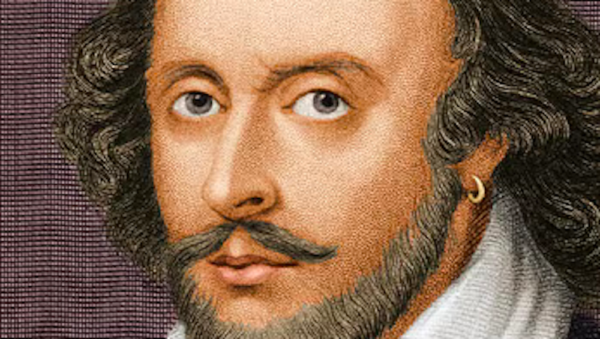
Shakespeare has been on my mind. Our local theater just did Macbeth and I have been reading about Shakespeare in an excellent book my wife gave me for Christmas.
I’ve always been a fan, but I enjoy a particularly good take on what makes Shakespeare what he was. Here’s an example: Julius Caesar himself was from the 1st century B.C.E., Shakespeare writes Julius Caesar almost 1,700 years later, around 1599, and centuries later the story and politics still resonate with our modern circumstances. Throughout all that time, Shakespeare focused on precisely what makes the story timeless. As Bulent Atalay writes in Beyond Genius: A Journey Through the Characteristics and Legacies of Transformative Minds:
“As common meta tags to describe sentiments in ancient Rome of the first century B.C.E., those in Shakespeare’s world of the 1590s, and those in modern times, we can choose from scores of words: race, gender, class, violence, insurrection, democracy, autocracy, dictatorship, populist… As for why these emotionally packed words are so timeless, we do not have to look very far.”
“Gappiness”
Shakespeare is timeless, but to Shakespeare scholar Emma Smith, that’s far less important than the “gaps” left in his work.
Atalay quotes Emma Smith, a Shakepseare scholar:
“That gappy quality is essential… Shakespeare’s plays are incomplete, woven of what’s said, and what’s unsaid, with holes in between.” Butalay adds “The reader has to supply answers relevant to his own world, his own time, his own experiences and values.”
What Shakespeare gave us was universal and open ended. That’s why his stories can be interpreted in many different ways and in many different styles and contexts, and across centuries.
How to apply Shakespeare’s genius to uplevel your life
1. Be timeless like Shakespeare
Timelessness can change your life, timeless wisdom and morals
“The human condition changes very little, even as we develop more and more powerful technology.” – Bulent Atalay
Timelessness is not the same thing as antiquated, obsolete, or backwards. Timelessness is not necessarily rooted in history, but history is often proof of its existence. Timelessness is also right now, in the present, and is also ahead of us, in the future.
But back to your life. The most obvious way to begin to allow timelessness to uplift you is to frequently read ancient wisdom. If it’s ancient, and has survived, there’s a good chance it’s timeless. Many of you are already reading ancient wisdom, I’m certain. You don’t need to hear this. Some of you may roll your eyes at the concept of “ancient wisdom” and think it’s either too bro or too fortune cookie.
But I find it comforting to feel like someone from a distant time and place knows exactly how I’m feeling right now, and can offer advice that transcends time and space.
Okay, so now let’s say you’ve read Seneca and Lao Tzu and you’re feeling content and purposeful. Now what?
Start exploring the timeless beauty in the world, and start creating it. Explore every art, and look for the commonalities. Create something that speaks to you and might speak to someone else. Perhaps even try to create something you think would speak to someone 1,000 years in the future. Or something that would be meaningful to your child self, your present self, and your 90-year-old self.
Why? For one, it’s a powerful solvent against the hopeless dread we’re feeling in an age of uncertainty and frightening technology.
And for two, it allows you to embrace every stage of your life, from youth to old age.
2. Embrace open-endedness like Shakespeare
“What makes Shakespeare’s works so powerful, the pervasive open-endedness, is also what makes Beethoven’s Fifth and Ninth Symphonies Land Leonardo’s The Last Supper and his Mona Lisa so powerful … Leonard Bernstein’s characterization of the music of transformative genius Beethoven …’You don’t get tired of listening repeatedly to the same piece by Beethoven…’” – Bulent Atalay
Treat your life as an open-ended question. As soon as you’ve applied limitations to your life, and decided that you’ll never so this or that, you’ll only do this or that, you’ll never feel this, you’ll always feel that, you’ve broken Shakespeare’s rule and created a “play” that is so narrowly defined that it can only be interpreted one way.
Every day is an open-ended question. A good conversation is full of open-ended questions. Be open ended and allow your life to be full of opportunity.
If you’re an artist, create something that can be “filled in” with meaning by the viewer or listener.
3. Be a psychologist like Shakespeare
Shakespeare understood the complex psychology behind what makes humans do the things they do, and he seems to have understood how universal these behaviors are.
Our relationships and our work can benefit when we approach our fellow humans with understanding of their inner lives. This understanding can lead to empathy, and it can also help us navigate the tricky social worlds of our careers.
If you are a writer, or an artist of any kind, you already know the value of “being a psychologist” in your work. To understand human nature and human behavior is to create masterpieces that speak to all of across eons.
– Joe